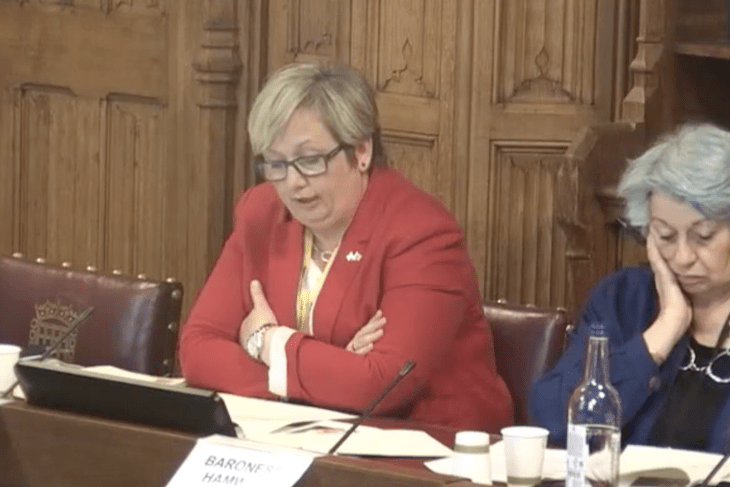It can never be said enough that Twitter is not real life, and that it is a huge mistake to think that what goes on there is representative of politics, society or humanity as whole. I’m not sure about its overall impact on the world, but I sometimes think that British politics and journalism might be better if Twitter did not exist.
But it does exist, and it does matter. Debate there helps to shape conversations more widely. And yes, Twitter gives a voice and a platform to people who might otherwise have none.
So when Twitter starts denying a voice and a platform to certain people and certain ideas, that matters. It also matters when Twitter makes it possible for certain people with certain ideas to be violently abused for expressing those ideas.
Twitter matters in the debate about sex and gender because, at a time when some media outlets and some political representatives are a bit reluctant to engage in a full, rounded debate, Twitter is for some people the only place to talk. So it really matters when Twitter allows the nasty intimidation of women who express views that some people don’t like. And it really matters when Twitter bans from its platform women who express such views – or just state facts that some people find inconvenient.
Both of those things are happening, and happening routinely. Nasty abuse of women who question the mantra that ‘trans women are women’ – or simply ask questions about the implications for law and policy of that stance – is commonplace, with grim consequences.
Even women with prominence, eloquence and clout are subjected to this stuff. The brilliant journalist Helen Lewis has said that she has partially withdrawn from Twitter because of the abuse and threats she receives there from pathetic, cowardly men claiming to promote the interests of transgender people. Abuse and threats that Twitter appears content to tolerate.
https://twitter.com/helenlewis/status/1122812276640309254
Yet elsewhere, Twitter takes a very different approach to what it permits to be said on its platform. Among women who question transgender ideology, an experience almost as common as being abused online is being banned from Twitter for saying things some men don’t like. I could write a very, very long article listing all the women who have been barred from a media platform (that turns a blind eye to threats of violence) simply for stating facts. Facts like ‘men are more likely to commit crimes of violence than women’ and ‘in English law, a rapist must be male because rape is defined as inserting your penis into another person’s body without consent’.
Instead of writing that long article, I simply urge you to click on #TwitterHatesWomen to see the sort of stuff Twitter allows to be hurled at women by unpleasant, inadequate men, and the sort of innocuous, factual statements that can get a woman banned from Twitter for violating its ‘rules’ on hateful conduct.
And because Twitter, sadly, matters, this stuff needs to be debated and scrutinised. Which is why this article isn’t really about Twitter and its awfulness, but about a politician who has done something rather wonderful.
That politician is Joanna Cherry QC, an SNP MP and member of the Joint Committee on Human Rights. It was at that committee that Cherry recently said ‘f**k’ and ‘c**t’ a lot, and in so doing did her job as a parliamentarian in an arena where many others have failed.
The context was a hearing where a Twitter representative was giving evidence about the site’s role in the intimidation of politicians.
You can watch the whole thing here, and I recommend that you do.
You’ll see an experienced lawyer calmly marshalling evidence of Twitter’s lopsided, sexist approach to the gender debate, and an executive floundering in the face of that evidence. (The swearing, to be clear, was Cherry quoting the sort of stuff she gets sent routinely online.) Among the significant moments of the session was Cherry extracting the concession that ‘Terf’ (trans-exclusionary radical feminist) is, of course, a term of sexist abuse. It also appears that Twitter, like too many other organisations, doesn’t understand that ‘sex’ and ‘gender’ are two different things in UK law, and that the distinction matters, especially for women.
Nor did Cherry leave it there. She later followed up – on Twitter, naturally – by highlighting a selection of the further abuse she got for, er raising the abuse of women on Twitter.
Tonight I’m going to retweet all the abuse I get for calling out misogyny on twitter today in @HumanRightsCtte. It will be instructive. So fasten your seat belts we’re in for a bumpy ride #onlineabuse https://t.co/WPRFo1rSVz
— Joanna Cherry KC (@joannaccherry) May 1, 2019
This is all, in its way, fairly depressing and suspect it won’t make much difference either to Twitter’s miserable misogyny or the nastiness it tolerates. But at the same time, I’m cheered.
I’ve written here a lot that MPs are failing to do their jobs over the trans issue, failing to properly scrutinise evidence and assertions, failing to represent a full range of legitimate opinions, and failing to deliver a reasoned, respectful debate where the views and interests of all sides can be heard and considered. Failing to stand up to nasty bullies who want to silence — through fear and threat —women who say things they disagree with.
That’s still often true, but as time passes and the nastiness of this debate becomes ever more visible, some MPs are stepping up and doing that job. The impressive, admirable Joanna Cherry is one of them. Her colleagues, on all sides of the Commons, should follow her example.







Comments